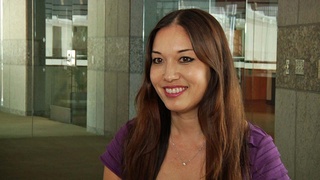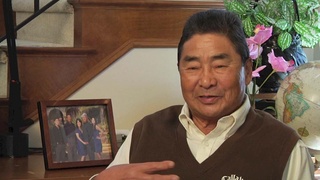Interviews
Donating clothes to the Japanese interns (Japanese)
(Japanese) Well, the war began, and the Germans, Italians, and Japanese were put into half of the internment camps. That’s where they put all of the political offenders. So I brought it [clothes] there to give, but I was asked, “Where are these clothes being donated from?” What should I say? I had to think on my feet, and I quickly replied, “From the Catholic Women’s Association. Please accept them.” Then there was a person that was in charge of the Japanese interns, so I asked, “How many Japanese are inside?” and he told me about 200. So I said, “Well this won’t be enough, but please pass them out to the people who seem to need it the most,” and with that, I left the clothes there and headed home.
Date:
Location: Brazil
Contributed by: Caminho da memória - 遥かなるみちのり. São Paulo, Brazil: Comissão de Elaboração da História dos 80 Anos de Imigração Japonesa no Brasil, 1998. VHS.






